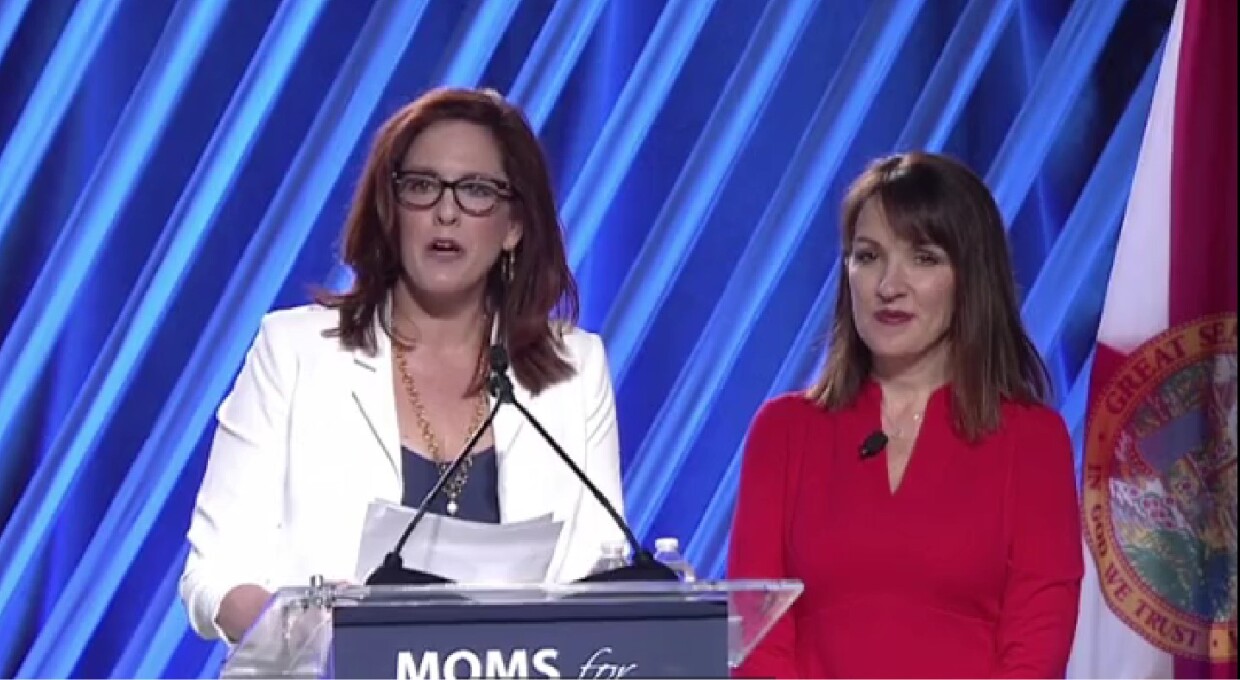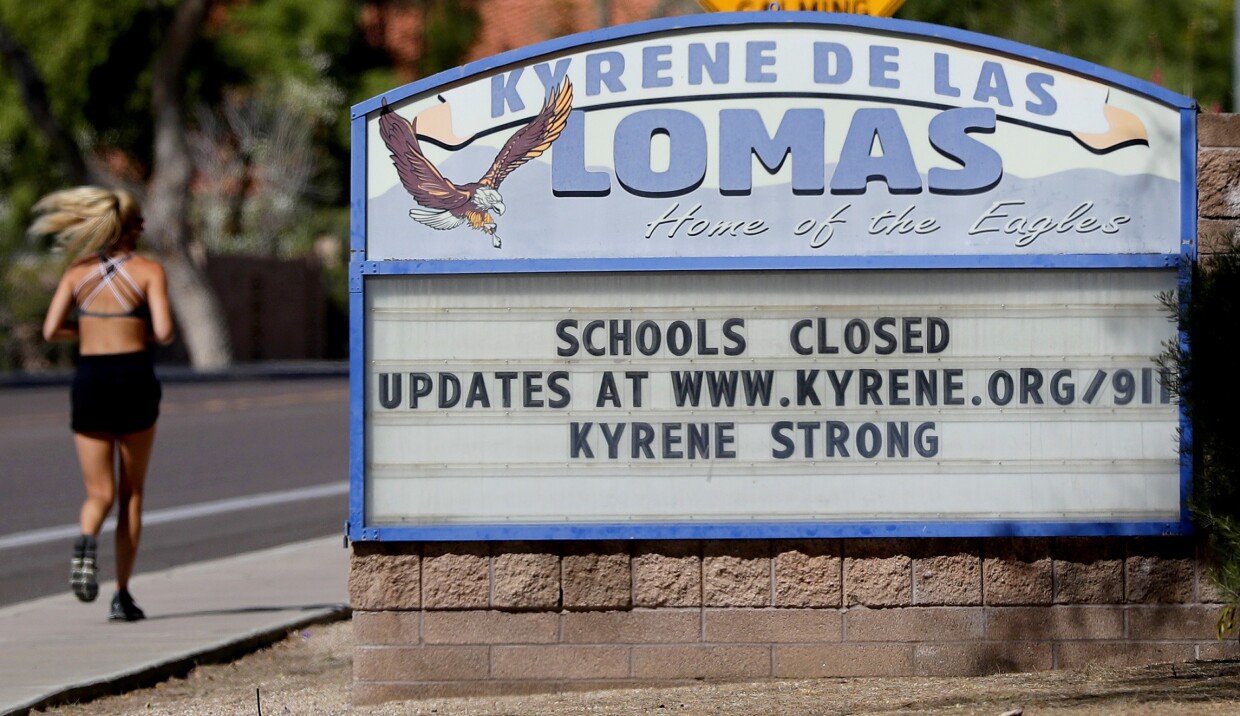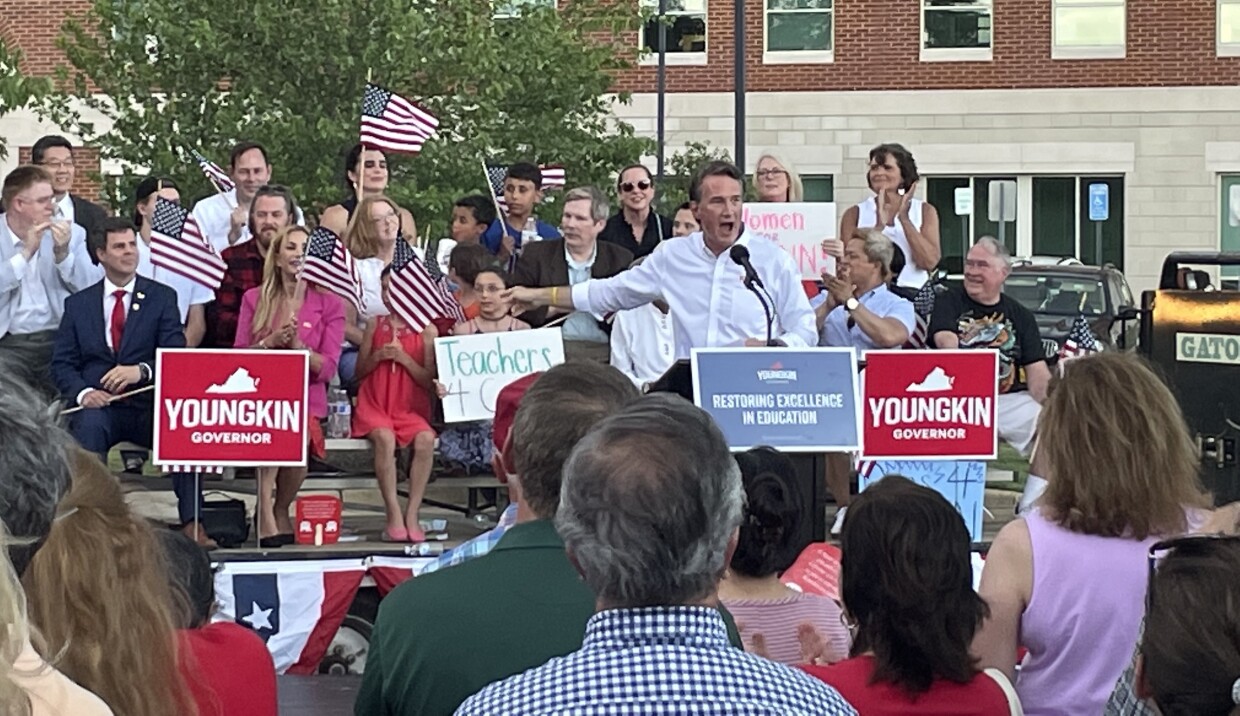
On March 13, 2020, then-Indian River County school board member Tiffany Justice was in shock.
It was the day Gov. Ron DeSantis (R-FL) announced that Florida ‘s schools would close due to the spread of the novel coronavirus
, and the mom of four school-aged children recalled the news hitting her like a gut punch.
HOUSE ADVANCES PARENTS’ BILL OF RIGHTS AND BAN ON BIOLOGICAL MALES IN WOMEN’S SPORTS
“I was standing in my school district, I was on a school board, and we found out the governor was going to close schools, and it was shocking, I remember feeling like someone … punched me in the stomach,” Justice recalled in an interview with the Washington Examiner. “A school district doesn’t start or stop easily, it’s kind of like a cruise ship. So the idea that we were going to shut down in-person learning and somehow try to pivot to online learning was like watching a train wreck happen in slow motion.”
Three years after the closure of schools, businesses, houses of worship, and everything in between, the fallout of the largest modern disruption to daily life still lingers on the anniversary of the national state of emergency former President Donald Trump declared on March 13, 2020.

Moms for Liberty co-founders Tiffany Justice (left) and Tina Descovich (right) speak at the first annual Moms for Liberty National Summit in Tampa, Florida. July 14, 2022
(Screenshot / Moms for Liberty via Facebook)
But for Justice, the sudden and shocking closure of schools and the switch to virtual learning offered a silver lining that she says awakened parents across the country to the reality of what was going in the nation’s public schools.
“COVID pulled back the education curtain for every American parent, and they were able to see what their children were learning and what their children weren’t learning,” she said. “What we learned is that our children’s education is being stolen from them and replaced with ideological garbage that isn’t going to unfold their full potential in life.”
The pandemic’s effect on education, stemming first from the extended school closures and then from parental concern over the increasingly politicized content of classroom curricula, “changed everything,” Ian Prior, a senior adviser at America First Legal and executive director of the political action committee Fight for Schools told the Washington Examiner.
The author of the upcoming book Parents of the World, Unite! How to Save Our Schools from the Left’s Radical Agenda, Prior explained that parental awakening began with concerns that classroom instruction provided by most school districts was inadequate. Frustrations later built over the lack of social interaction for students stuck at home, and finally, alarm at critical race theory and discussions on systemic racism that were supercharged by the riots after the 2020 death of George Floyd following an altercation with Minneapolis police officer Derek Chauvin. Chauvin was convicted of Floyd’s murder in 2021.

A runner passes a school closed sign Friday, April 24, 2020, in Phoenix. It took a decade for Arizona lawmakers to restore much of the school funding they cut in the wake of the Great Recession. Now, education leaders fear a looming recession created by the coronavirus could once again mean reductions in school funding. (AP Photo/Matt York)
(AP Photo/Matt York)
“Parents started realizing, ‘hey, this stuff sounds a little different than the things I’ve grown up with, [and I’m] trying to be a compassionate and inclusive person, but now I hear that’s not good enough,'” Prior said. “And then you start seeing this stuff in the schools, and you start seeing news about how it’s in the school. So [parents] start seeing and looking for what’s going on in these online learning sessions, and they’re starting to see some of this very language.”
As the school closures and concerns over curriculum grew nationwide, a grassroots movement of organized parents began to take hold and provided Justice with a new purpose following the end of her term on the Indian River County school board.
Justice, along with former Brevard County school board member Tina Descovich, launched the first chapter of the parent group Moms for Liberty to advocate in the local school district in the wake of the pandemic school closures, providing a visible and enduring legacy of the lockdowns. Today, Moms for Liberty boasts over 250 chapters in 44 states.
“It was time to re-engage parents in a very meaningful way,” Justice said. “It was more than just speaking at a school board meeting, yelling at a school board and going home, or being upset and going home. It was actually getting involved building relationships, understanding where authority lied for different issues, and then working together to make changes happen. That’s what our chapters do.”
And while the advocacy at the local level has been felt at school board meetings in every state, the political consequences of this new movement spilled into state elections in 2021 and beyond.
“During the COVID-19 pandemic, parents received a firsthand look into their children’s schooling and were appalled by what they saw,” David McIntosh, the president of the political action committee Club for Growth, told the Washington Examiner. “Rather than focusing on basics such as reading and math, curriculums centered around divisive ideologies aimed at promoting a biased agenda. After being labeled as ‘domestic terrorists’ by teacher’s unions and school boards for voicing their concerns, parents turned to candidates that would fight to restore their voice in their children’s education.
“Gov. Glenn Youngkin (R-VA) capitalized on this wave, which ultimately led to his victory, and other candidates around the country soon followed suit.”

Virginia Republican gubernatorial nominee Glenn Youngkin speaks at a rally outside the Loudoun County public schools building on June 30, 2021. (Emily Brooks/Washington Examiner)
(Emily Brooks/Washington Examiner)
Youngkin’s victory in the Virginia governor’s race in November 2021 on a campaign platform that leaned heavily on education and parental rights issues proved to be a watershed moment. Campaigns in the 2022 elections tried to emulate the governor’s success.
Meanwhile, Republican-controlled states turned to education issues as 2022 legislative sessions kicked off, and a plethora of bills protecting parental rights, banning critical race theory, and enacting school choice policies made their way through state houses and into law.
“Club for Growth recognized this trend during the 2022 cycle and helped elect candidates to positions where they can promote school freedom, such as South Carolina Superintendent of Education Ellen Weaver,” McIntosh said. “Now, we are seeing bills on the state level that promote school freedom develop throughout the United States due to the overwhelming support from constituents. As result, the school freedom agenda — scholarships, vouchers, and charter schools — has emerged and cemented itself as a key issue in shaping future elections.”
CLICK HERE TO READ MORE FROM RESTORING AMERICA
But despite the success the parental rights movement has seen since the beginning of the COVID-19 lockdowns, Prior isn’t quite ready to celebrate.
“I don’t think that we’re anywhere close to being to the point where we can say this successfully reformed education,” Prior said. “It’s going to take, you know, seven to eight more years to be able to say that this was this was a success. And if we get there, I think people are going to be able to point back to schools shutting down during COVID not reopening, and how that engendered a movement that really was the catalyst for reforming education.”






